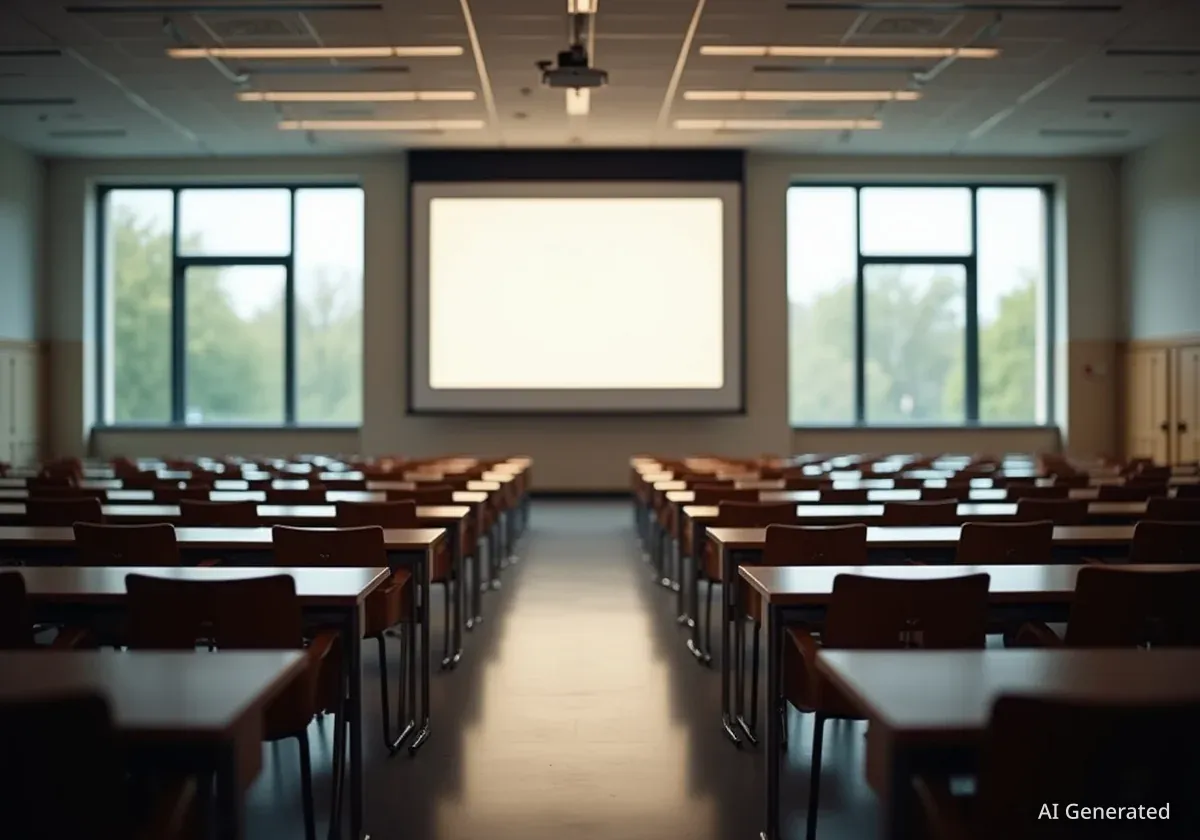The Texas Tech University System has directed its five universities to limit classroom instruction related to transgender and nonbinary identities. The guidance, issued by Chancellor Tedd Mitchell, cites recent state laws and executive orders that recognize only male and female genders.
This move makes Texas Tech the first university system in the state to implement such system-wide restrictions, raising concerns among faculty and civil liberties advocates about academic freedom and the scope of the new policies.
Key Takeaways
- Texas Tech University System issued guidance limiting classroom discussion on nonbinary and transgender identities.
- The directive applies to all five universities within the system.
- Chancellor Tedd Mitchell cited a presidential executive order, a gubernatorial letter, and a new state law as the basis for the policy.
- Advocacy groups argue the guidance misinterprets existing laws and infringes on academic freedom.
- University presidents are now tasked with reviewing course materials and syllabi to ensure compliance.
System-Wide Directive on Gender Identity
Chancellor Tedd Mitchell of the Texas Tech University System distributed a letter late Thursday outlining new limitations on academic discussions. The guidance instructs faculty across the system’s five institutions to align their teaching with state and federal directives that enforce a strict male-female gender binary.
The memo does not provide specific examples of prohibited content but mandates a broad review of all academic materials. University presidents have been instructed to oversee this process and ensure that all courses, syllabi, and curricula are adjusted as needed.
"While recognizing the First Amendment rights of employees in their personal capacity, faculty must comply with these laws in the instruction of students, within the course and scope of their employment," Chancellor Mitchell stated in the memo.
This directive follows a similar, campus-specific instruction issued earlier at Angelo State University, which is part of the Texas Tech system. The new letter expands that policy to the entire system, impacting thousands of educators and students.
System at a Glance
The Texas Tech University System is comprised of five distinct institutions:
- Texas Tech University
- Texas Tech University Health Sciences Center
- Angelo State University
- Texas Tech University Health Sciences Center El Paso
- Midwestern State University
Legal Justifications Cited in Memo
The chancellor’s guidance is based on three specific government actions. Mitchell’s letter instructs university leaders to ensure faculty adherence to these measures when conducting their teaching responsibilities.
The documents cited as the foundation for the new policy are:
- A presidential executive order that recognizes only male and female biological sexes.
- A letter from Texas Governor Greg Abbott directing state agencies to “reject woke gender ideologies.”
- A new Texas state law that mandates a strict binary definition of gender for the official collection of vital statistics.
Mitchell described the intersection of these legal requirements and academic instruction as “a developing area of law.” He noted that accrediting bodies, such as the American Psychological Association, are also navigating how to balance educational standards with new legal frameworks.
Concerns Over Academic Freedom
Civil liberties organizations have quickly responded to the new guidance, expressing serious concerns about its impact on academic freedom. Groups including ACLU of Texas and the Foundation for Individual Rights and Expression (FIRE) argue that the chancellor’s interpretation of the law is overly broad.
According to these advocacy groups, none of the laws or orders cited by Mitchell explicitly prohibit teaching or discussing transgender and nonbinary identities in a university setting. They contend that restricting such discussions constitutes a violation of established principles of academic inquiry and free speech in the classroom.
What is Academic Freedom?
Academic freedom is the principle that faculty should have the liberty to teach, research, and discuss ideas relevant to their field of expertise without fear of retaliation or censorship. It is considered essential for the pursuit of knowledge and the function of higher education.
Critics of the policy warn that it could have a chilling effect on faculty, who may self-censor to avoid potential disciplinary action. The ambiguity of the directive, which lacks clear definitions of what is permissible, is seen as a significant part of the problem.
Implementation and Future Uncertainty
With the new directive in place, university presidents are now responsible for ensuring compliance. Faculty members with questions about how the policy affects their specific courses have been told to consult their deans and provosts for clarification.
The timing of the announcement adds another layer of complexity. Chancellor Mitchell is expected to step down from his position later this month. His successor is anticipated to be state Senator Brandon Creighton, whose appointment is pending confirmation by the system's regents.
The transition in leadership raises questions about the long-term enforcement and potential modification of this new policy. For now, faculty across the five universities must navigate the vague instructions while preparing for the upcoming academic terms.
The situation at the Texas Tech University System will be closely watched by other public universities in Texas and across the country as they grapple with similar political and legal pressures regarding curriculum and classroom speech.





